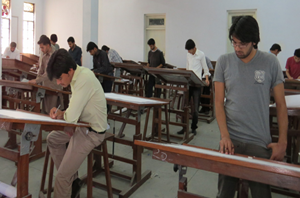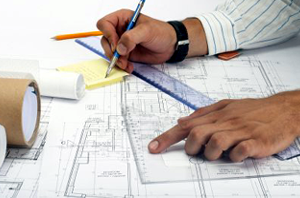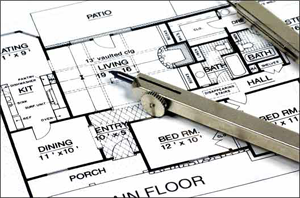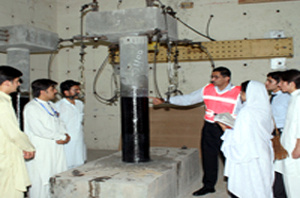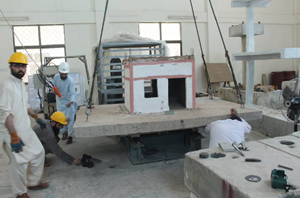Department of Civil Engineering Peshawar Campus
The courses of study leading to the Degree of B.Sc. Civil Engineering have been planned to offer a broad spectrum of Civil Engineering subjects. The curriculum lays emphasis
on subjects of structures, irrigation, geotechnical, transportation engineering,
environmental engineering and hydraulics. These courses include laboratory and design work.
The prescribed syllabi and examination standards compare favorably with the standard of under-graduate work developed in UK, USA and Canada.
In addition to course work, the final year students are required to work on a project under the guidance of a senior faculty members. Study tours and extension lectures are also arranged during the session for the benefit of the students.
Second or third year students during their summer break and final year students after passing the final examination in Civil Engineering may work with some recognized organizations, registered with PEC or government department or semi-government department to acquire practical
training of 800 hours for award of degree.
The Department of Civil Engineering offers a post-graduate programme with specialization in structural engineering, water resources engineering, environmental engineering, geotechnical engineering, transportation engineering and earthquake engineering.
Program Mission
The mission of Department of Civil Engineering is stated as under:
"To produce civil engineers having the knowledge, skills, and professional attitude that will enable them to develop innovative, safe, economical, and sustainable solutions for society."
The Program Educational Objectives (PEOs)
- The civil Engineering graduates will:
PEO-1.
"Exhibit flexibility and competency in bringing demanding projects to completion by applying in-depth engineering principles, analytical skills and modern practices"
PEO-2.
"Practice relevant codes for the betterment of civic/communal issues using eco-
friendly standard protocols, considering hazard mitigation and human well-
being."
PEO-3.
"Pursue a strategy of long-term knowledge acquisition by considering modern computational techniques and novel tools to bring about a noticeable change"
PEO-4.
"Lead and work collaboratively, through sound communication, efficient resource management, and effective public dealing to achieve quality assurance
in diverse and office environments."
Program Learning Outcomes (PLOs)
The twelve Graduate Attributes (GAs) have been adopted from the PEC Manual of Accreditation (third edition 2019), and are as follows:
1. GA1.
"Engineering Knowledge: An ability to apply knowledge of mathematics, science, engineering fundamentals and an engineering specialization to the solution of complex engineering problems."
2. GA2.
"Problem Analysis: An ability to identify, formulate, research literature, and analyse complex engineering problems reaching substantiated conclusions using first principles of mathematics, natural sciences, and engineering sciences."
3. GA3.
"Design/Development of Solutions: An ability to identify, formulate, research literature, and analyse complex engineering problems reaching substantiated conclusions using first principles of mathematics, natural sciences, and engineering sciences."
4. GA4.
"Investigation: An ability to investigate complex engineering problems in a methodical way including literature survey, design and conduct of experiments, analysis and interpretation of experimental data, and synthesis of information to derivevalid conclusions."
5. GA5.
"Modern Tool Usage: An ability to create, select and apply appropriate techniques, resources, and modern engineering and IT tools, including prediction and modelling, to complex engineering activities, with an understanding of the limitations."
6. GA6.
"The Engineer and Society: An ability to apply reasoning informed by contextual knowledge to assess societal, health, safety, legal and cultural issues, and the consequent responsibilities relevant to professional engineering practice and solution to complex engineering problems."
7. GA7.
"Environment and Sustainability: An ability to understand the impact of professional engineering solutions in societal and environmental contexts and demonstrate knowledge of and need for sustainable development."
8. GA8.
"Ethics:Apply ethical principles and commit to professional ethics and responsibilities and norms of engineering practice."
9. GA9.
"Individual and Team Work: An ability to recognize importance of and pursue lifelong learning in the broader context of innovation and technological developments."
10. GA10.
"Communication: An ability to communicate effectively, orally as well as in writing, on complex engineering activities with the engineering community and with society at large, such as being able to comprehend and write effective reports and design documentation, make effective presentations, and give and receive clear instructions."
11. GA11.
"Project Management: An ability to demonstrate management skills and apply engineering principles to one's own work, as a member and/or leader in a team, to manage projects in a multidisciplinary environment."
12. GA12.
"Lifelong Learning: An ability to recognize importance of and pursue lifelong learning in the broader context of innovation and technological developments."
- Academic Programs
- - B.Sc. Civil Engineering
- - M.Sc. Civil Engineering
- - Ph.D. Civil Engineering
Field Visits/Industrial Visits
Field visits to Civil Engineering projects of national importance are arranged for students. Each year students and concerned faculty members visit facilities/projects having high technical stature.
Survey Camp
Each year field course in surveying and leveling is arranged, for students of third year Civil Engineering for a period of three weeks for site experience. The course includes hands-on work in contouring, triangulation, fly leveling and road surveying. The survey is done with theodolites, levels and total stations. Survey plots are prepared with both manual and computer-aided drawings.
- List of Laboratories The Department of Civil Engineering is supported by well-equipped laboratories having state-of-the-art machinery and equipments. It has the following laboratories:
- - Concrete Laboratory
- - Hydraulics Laboratory
- - Soil Mechanics Laboratory
- - Highway engineering Laboratory
- - Material Testing Laboratory
- - Surveying Laboratory
- - Public Health Engineering Laboratory
- - Postgraduate Computer Laboratory
- - Undergraduate Computer Laboratory
- - Structural Engineering Laboratory
- - Earthquake Engineering Centre
- Research The faculty is involved in need-based target oriented research project. Some of the projects recently undertaken by faculty are related to:
- - Application of Slope Stability Techniques
- - Development of Attenuation Relationship for Pakistan
- - Microzonation Map for Different Cities of Pakistan
- - Seismic Strength Evaluation of Masonry Buildings
- - Evaluation of Indigenous Pozzolanic Materials
- - Insulation Properties of Porous Bricks Cavity Walls and Other Indigenous Materials
- - Shake Table Test on Reduced Scale Masonry and RC Structures
- - Advanced Composite Materials
- - Bridge Assessment (Collapse Analysis)
- - Earthquake Resistant Design
- - Low Cost Water Filters
- - Cost and Performance Optimization of Bridge Superstructures
- - Use of Waste Material in Construction of new Roads
- - Seismic Performance Assessment and Retrofitting of RC frame, low strength masonry, and steel moment frames.

